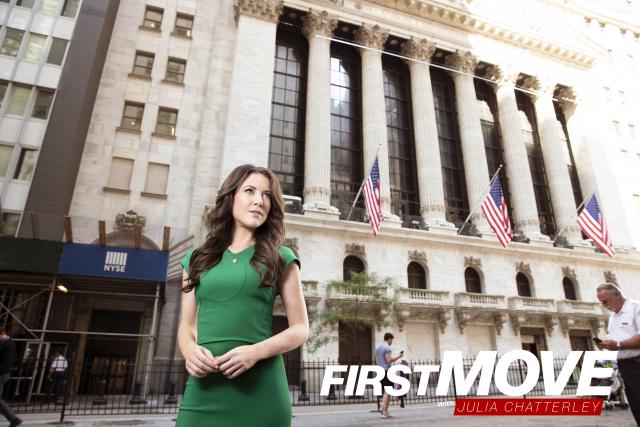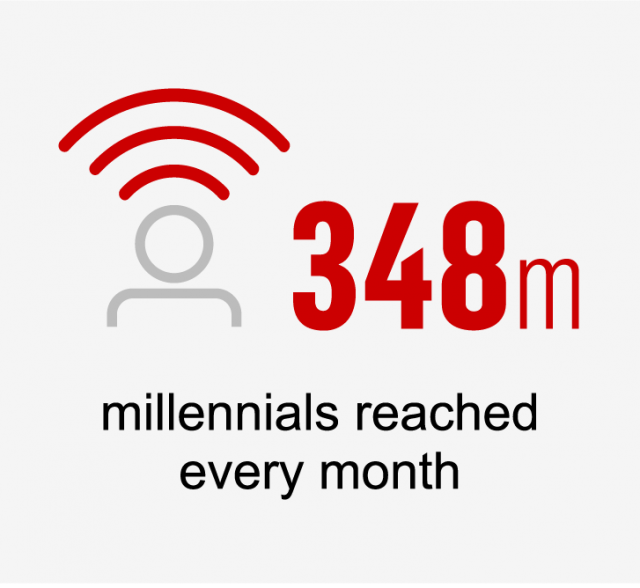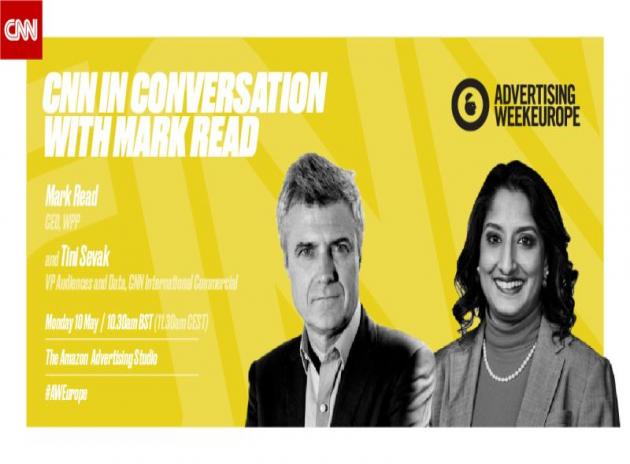Business can't wait for politics to fix itself
Viewpoint from CNN Business
A quarterly series of industry insights and blog posts from our leading CNN editors, anchors and senior executives
Julia Chatterley is anchor of First Move with Julia Chatterley on CNN International. Here, she reflects on the global and geopolitical issues influencing corporations worldwide and how, to stay ahead, businesses might need to take the lead on the policies and economic conversations dominating societies today.
Last month, as anyone in New York travelling by car will tell you, the UN General Assembly came to town. The annual event invigorates and paralyses the city in equal measure. On the one hand, the eyes of the world are on Manhattan and the week can be a dizzying rollercoaster of poignant moments. On the other, normal life goes haywire. It's much harder to get where you need to go, and often more expensive too. Greta Thunberg may not have been the only person shouting 'how dare you?' this week, but the difference is her voice matters.
In a way, it’s a metaphor for the relationship between business and government. This year’s UNGA week was a near-perfect encapsulation of the sclerotic nature of politics in 2019. Take your pick from a US impeachment inquiry, constitutional mayhem in the UK over Brexit, the 17th weekend of protests in Hong Kong and that’s before we even get to anything like actual policymaking.
But while politicians argue themselves to inertia, business lacks the luxury of waiting for resolutions. They must make money, report earnings, pay workers, make investment decisions and innovate for the future. In short, they need to get on with it. As a reporter in Italy, CEOs would often tell me they simply carried on regardless through political disruption and frequent general elections (nothing's changed!). It’s a skill that businesses are having to hone elsewhere in the world now too.
Capturing those moves and connecting the dots is what makes a daily morning business show like First Move special, but it also makes it tough to plan. Like any show team these days, we are often scrambling to rewrite our rundown at the very last moment.
We start each show with a section called ‘The Drivers’ - our view of what will drive conversation and/or the market price action that day. On September 18th, seven minutes before we went to air, President Trump announced a substantial increase in sanctions on Iran, minus any details; then, 23 minutes into the show, he named his new National Security Advisor. Both potentially market-moving moments, and the timing impossible to predict. The Drivers practically drove themselves out of the nearest NYSE exit. It was an extreme, but not atypical example of how the framing of the business day can quickly change.
A recent Duke University survey of what worries CFOs the most put economic uncertainty and government policies at numbers one and three respectively.
Markets like certainty. It’s a cliché that is repeated more in unpredictable times. To be specific, business investment growth in the U.S. was bubbling along at 8% in January but is now flatlining; it is hard to find a bigger culprit for that than the policy uncertainty dominating geopolitics. Right now, that's global trade; but the list of issues is a long one.
The response from big business is following a clear pattern. Rather than waiting to see what happens, many companies are taking the lead on key issues, even when the politicians are tying themselves in knots. From the environment to infrastructure, via healthcare and education, business is leaning into the issues, even if that also brings controversy. It is as though companies have moved from working with or around government policy to actively insuring against it, simply because they can't afford to miss the boat.
Amazon is, if you’ll pardon the pun, a prime example. CEO Jeff Bezos recently announced his company was “done being in the middle of the herd on this issue,” hauling the behemoth out in front of the pack by announcing it would be carbon neutral by 2040, a full decade before the deadline scientists have suggested in order to avert a fully-fledged climate catastrophe.
Dutch banking giant ING’s chief executive, Ralph Hamers, told me this month that while banks themselves may not have much of a direct carbon footprint to reduce, they can make sure they are lending to clients who care. Where there is technology available, ING wants its clients to invest in it and manage their footprint down. “If they don’t do it, we may exclude them,” Hamers says.
Such decisions are partly born of cold pragmatism: Amazon knows its customers and employees want and expect it to play its part; ING doesn’t want outstanding loans to sectors that find themselves on the wrong side of regulation one day, leaving it with stranded assets.
...business is reflecting society’s direction perhaps faster and more accurately than the politicians...
But this is a broader trend in which business is reflecting society’s direction perhaps faster and more accurately than the politicians. Political stands on issues from gun control, police brutality to same-sex marriage are now commonplace for companies. The risks, brands like Nike have decided, are worth it. They know their audience and their customers, not to mention their workforce. While the current US administration rolls back environmental protections, companies as varied as Tesla, Unilever and Patagonia have doubled down on fighting climate change.
Populism is taking hold politically around the world, with a message that – to business at least – often seems regressive. Technology, stateless and apolitical, is disrupting the way we communicate and the way we work. The more leaders try to shore up national boundaries, the more challenges to achieving it become exposed. Even the US-China trade war boils down to a battle over technology and innovation, and the power those advances may yield in the future. China missed the industrial revolution and skipped a century as a result; they don’t intend to let that happen again and have long term strategies to ensure it. Its commitments to innovation like AI and greener technology like electric vehicles may be overdue, but they are clear-eyed, calculated and decisive.
The pivot point could come when the business tail fundamentally wags the political dog, at least in the United States. There is one data point that connects the four presidents that didn’t win re-election post the Second World War: the unemployment rate was higher when they attempted re-election versus the level during the midterm elections. Right now, that may look unlikely, but amid a global slowdown, US-China trade war and looming US recession risks, the horizon for future business hiring is clouded by uncertainty.
Innovation matters, as do shifts in society. The next generation has a different attitude to companies’ role on issues that may, in the past, have been purely political. It’s a reminder to governments around the world that the economy matters, that business matters, and if you follow the money you often find the answers. Whether politicians like them or not.
Julia Chatterley, Anchor, First Move with Julia Chatterley, CNN International
-----------------------------------------------------
A partnership that goes beyond breaking news
The CNN audience knows us for impartially told stories and equally, they also expect brands to understand them and to engage with them at the right time in the right place. At CNNIC, we have the insights and creative mindset to put your relevant branded content in front of engaged consumers.
CNN's influencer audience
Want to know how CNN can reach your target audience?













